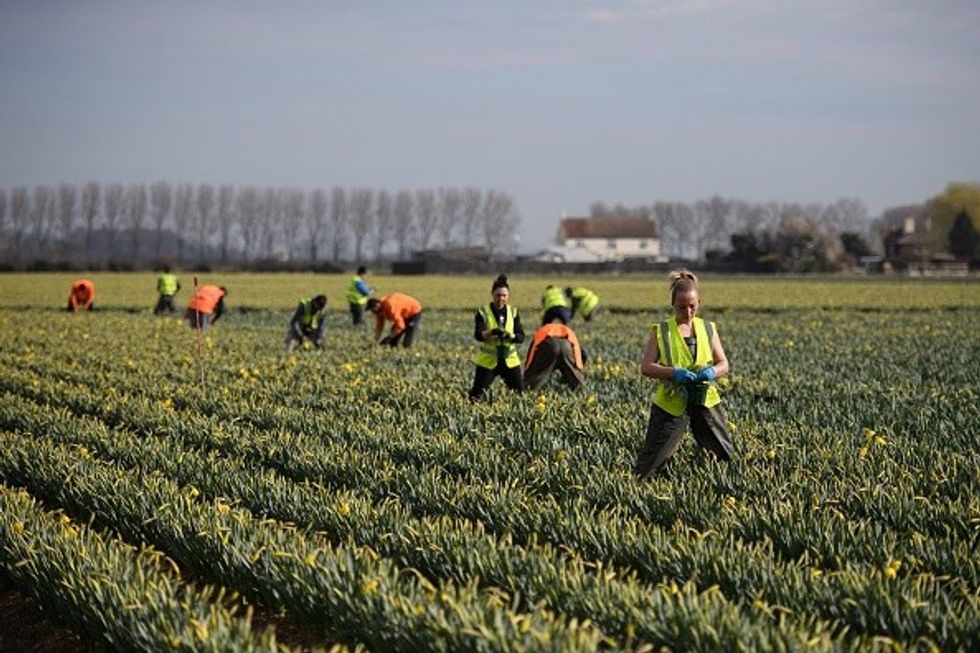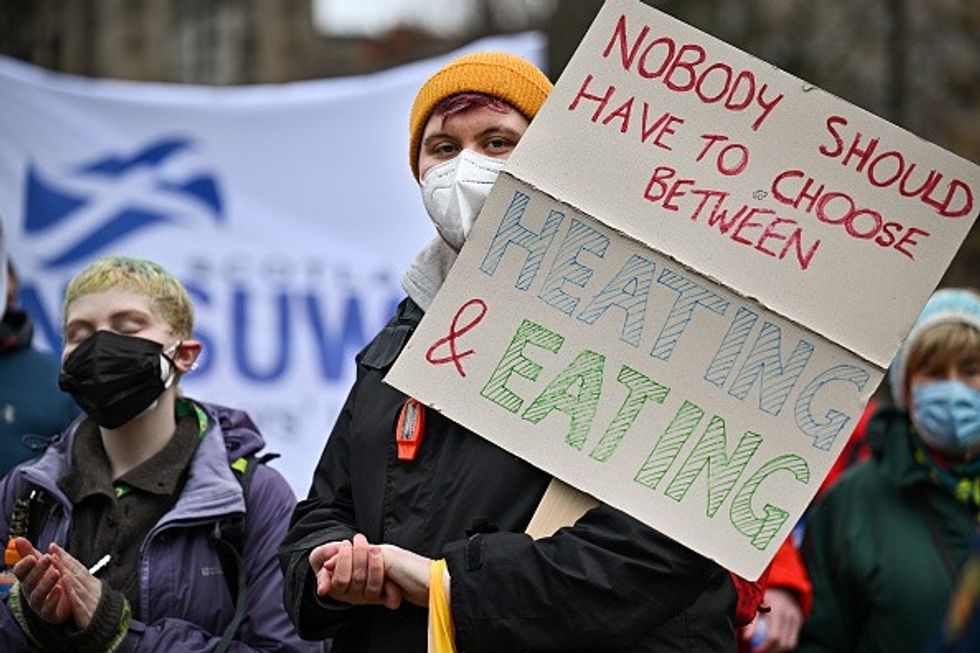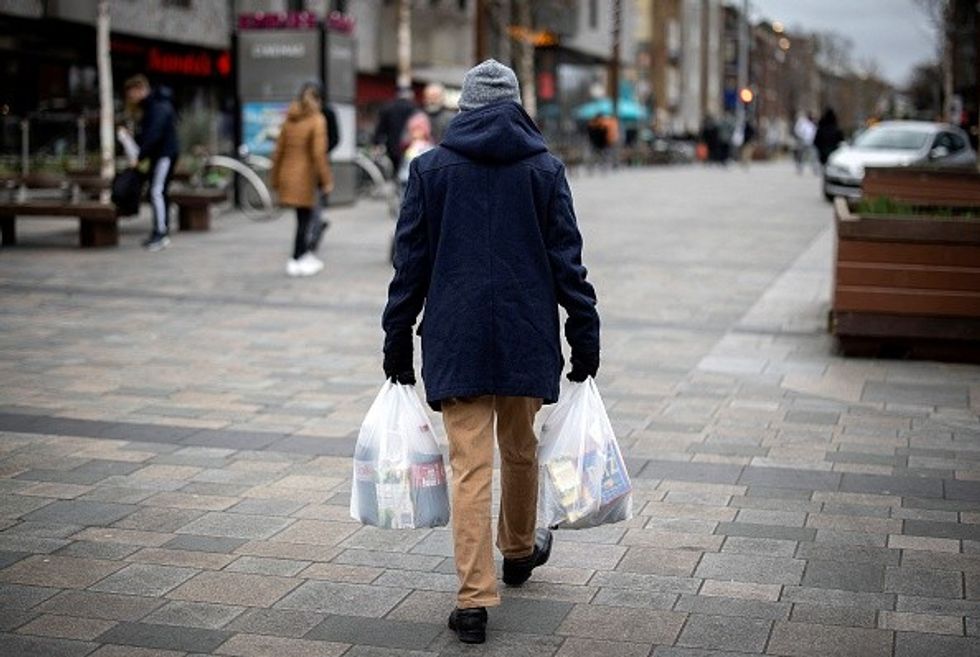The ongoing conflict between Russia and Ukraine and resulting food shortage and thereby higher food prices is now having a crippling effect on local shops.
Russia’s invasion of Ukraine is now in its eleventh week, with Vladimir Putin’s troops continuing attacks, facing strong opposition from Ukrainian forces. Apart from lives being lost and millions displaced, the invasion has also added to volatility in global markets, sending commodity prices higher, affecting logistics and even potentially derailing the economic recovery.
Russia is the world's largest natural gas and fertiliser exporter, and second largest crude oil exporter. Together with Ukraine, it accounts for nearly a third of global wheat exports, 19 percent of corn exports and 80 percent of sunflower oil exports.
Production and exports of these and other commodities have obviously been disrupted since Russia's Feb. 24 invasion of Ukraine. The shortage is now exacerbating already elevated inflationary pressures.
Restricted supply
Ukraine was the world's fourth-largest exporter of maize (corn) in the 2020-21 season and the number six wheat exporter, according to International Grains Council data. As per a recent revelation by a U.N. food agency official, nearly 25 million tonnes of grains are now stuck in Ukraine.
Interestingly, even though the UK does not import all of these foods (trade body UK Flour Millers says we use no Ukrainian or Russian wheat in foods destined for human consumption), the country is still facing price implications owing to higher global prices which is then passed onto retailers and consumers.

Wheat shortage, however, is expected to last for a long time. Ukraine’s current exportable surplus is around 12 million tonnes, and agriculture analysts have said the stocks are so high that there will not be enough room to store the new harvest when it comes. On the other hand, Ukraine has sown only about 7 million hectares of spring crops this year, or 25-30 percent less than a year earlier, posing a threat to future supplies.
Another kitchen staple that is making news amid the Russia-Ukraine war is sunflower oil. Most of the UK’s sunflower oil comes from Ukraine while for rapeseed oil, we are roughly 50 percent self-sufficient. The overall tension in the region - mixed with a near-total halt to shipments out of Ukraine - implies that both cooking oils are now in shorter supply in the country while substitutes like olive oil are struggling to keep up with suddenly-spiked demand.
War also led to panic buying, leading to shortfalls across the whole supply chain up to the final consumer, thereby sending prices rocketing.
Fertiliser domino-effect
Fertiliser, a key product in farming, is also facing a spike in costs as Russia provides many of the raw ingredients for them, as well as the fuel to produce them.
The UK is currently facing a fivefold increase in fertiliser cost. The increasing cost is now showing its effect as recent figures indicate that sales of fertiliser plunged by more than a third last month- something which is now prompting further fears of a fall in crop yields.
British farmers use around one million tonnes of manufactured nitrogen each year, according to Anthony Hopkins, chief crops adviser at the National Farmers’ Union (NFU). Yet they are facing unprecedented costs for this vital ingredient.
Higher fertiliser prices also imply lower usage which in turn lead to shortage of grass for animal feed. Farmers are now gambling that favourable weather can make up for lower fertiliser usage.

The British Growers Association has warned of “a difficult and uncertain season for growers and buyers alike” this year.
Additionally, higher gas prices, which spiked after a surge in natural gas prices late last year and later exacerbated by Russia’s invasion of Ukraine, too are making the crops economically unviable.
Like in the case of cucumbers, cost has jumped from 25p to 70p. As per a recent report, vast glasshouses stand empty in south-east England owing to the soaring cost of energy as farmers are shying away from using heat to grow cucumbers. Elsewhere in the country growers have also failed to plant peppers, aubergines and tomatoes.
Crippling High Prices
Currently, it seems that higher cost, rather than shortage, is becoming a bigger problem for retailers.
Availability of food items, including much-talked about sunflower oil, is not much of an issue at Premier store in Gosport, Hampshire, though the store owner Imtiyaz Mamode states that increasing cost is something which is now hurting his business.
“The situation at the moment is not easy at all for the customers and for retailers as well. Just because for most of the products, I won't say a few, but for most of the products, the price has been changed,” Mamode told Asian Trader.
“Prices of almost everything have increased. People who used to spend 60-70 pounds per visit are now spending 20-30 pounds only.
“Basket spend has dropped drastically. Clearly, shoppers are saving money to meet other demands like paying energy bills and refueling their vehicles” pointed out Mamode.

Contrary to claims in the media over shortage of certain food products, Mamode assured that supply is not that great a concern as of now.
“Shortage is something in the media a lot. However, I have not yet faced any difficulty in procuring any of the items, including sunflower oil, from my supplier.
“If I don’t get anything from Booker, I get that from Londis. So rather than shortage of any food commodity, it is ever-increasing prices that are affecting my business.”
“Customers are trying to save their money so that they can use it wisely on other things, which is the demand of the time. But it is draining us,” Mamode told Asian Trader.
Just like Mamode, Scotland-based retailer Anand Cheema has not faced any major shortage of any product. So far, higher prices and way higher energy bills are affecting his business.
“We have got a number of different wholesale options that we use. I will urge all retailers, not just to stick to one wholesale but rather try and source locally too,” said Cheema, who runs Spar store in Falkirk.
“Prices are going up quite heavily. We are seeing an effect in our sales, naturally due to the increase of prices.
“Shoppers here understand that the spike is across the board- in supermarkets as well as in convenience stores.
“They understand it’s a collective increase, not just in convenience,” he said.

On the contrary, retailer Vijay Kalikannan, who runs three stores in Middlesbrough, revealed that sometimes, local convenience stores have to bear the brunt of shoppers’ anger and frustration despite the much-talked inflation and war effect.
“Since it is a local convenience shop, if we hike the price, shoppers will talk about it and protest it. But, it's not our fault!
“The wholesalers put prices up so we have to raise them too. I also have to cover higher energy bills, increased national minimum wages and other taxes. I have to make some profit after all.
“In one of my shops, energy bills have gone up from 850 pounds to 2,200 pounds a month- an increase of more than double.
Echoing similar opinions from Mamode and Cheema, he too said it is higher prices , rather than availability, that are having a bigger crippling effect.
“Prices are going up every day, every week for different products. My cost is also going up. We have to survive anyhow. We can’t do anything about it,” said Kallikannan.
Retailer Mamode echoes similar opinion.
“We are struggling. We are not doing the same amount of sales at the moment that we used to do. It is just because of the increase of not only the price of the product, but the other things as well like electricity bill and fuel prices,” he said.
Wrap
After the initial shock, the industry and the supply system have been adapting so the availability is expected to come to closer to normal levels. Like, earlier this month, European vegetable oil group FEDIOL declared that sunflower oil availability has improved in Europe over the past weeks as producers have adapted to the shortfall in Ukrainian supplies and some supplies have arrived by rail and truck.
However, high prices are expected here to stay for months to come.
World Bank in its latest Commodities Market Outlook report has said that global food and fuel price shocks linked to the Russia-Ukraine war are set to last until “at least the end of 2024”. In its first comprehensive analysis of the war's impact on commodity markets, the bank said the world is facing the biggest commodity price shock since the 1970s.
Overall, the cost of food in the UK is poised to rise by up to 15 percent this year.
Retailer Cheema observes that times are tough and what we need here is “perseverance”.
“I just think there needs to be a bit of perseverance for all parties involved. It's a tough time for everyone, not just in retail,” he concluded.
In the words of Ronald Kers, the boss of food firm 2 Sisters, if the war continues for months, "fundamentally it means as a country we may need to start importing less and producing more ourselves".
Mamode too echoes Kers’ opinion. He said that “if we don't start getting production in the UK and keep relying on the other countries, such situations will keep on affecting us”.
“So the best thing is to bring some renewable energy and start production in the UK itself so that we don't have to buy from other countries,” he concluded.






